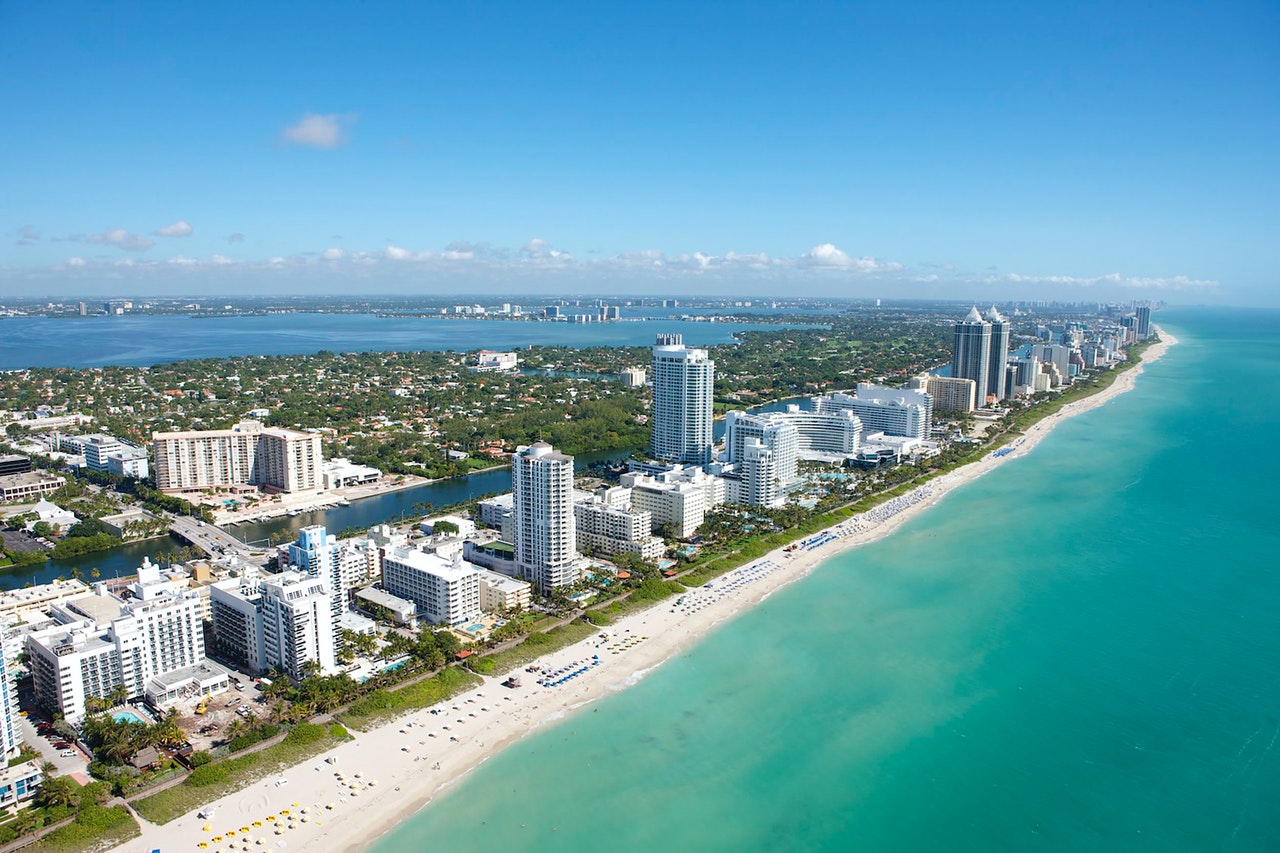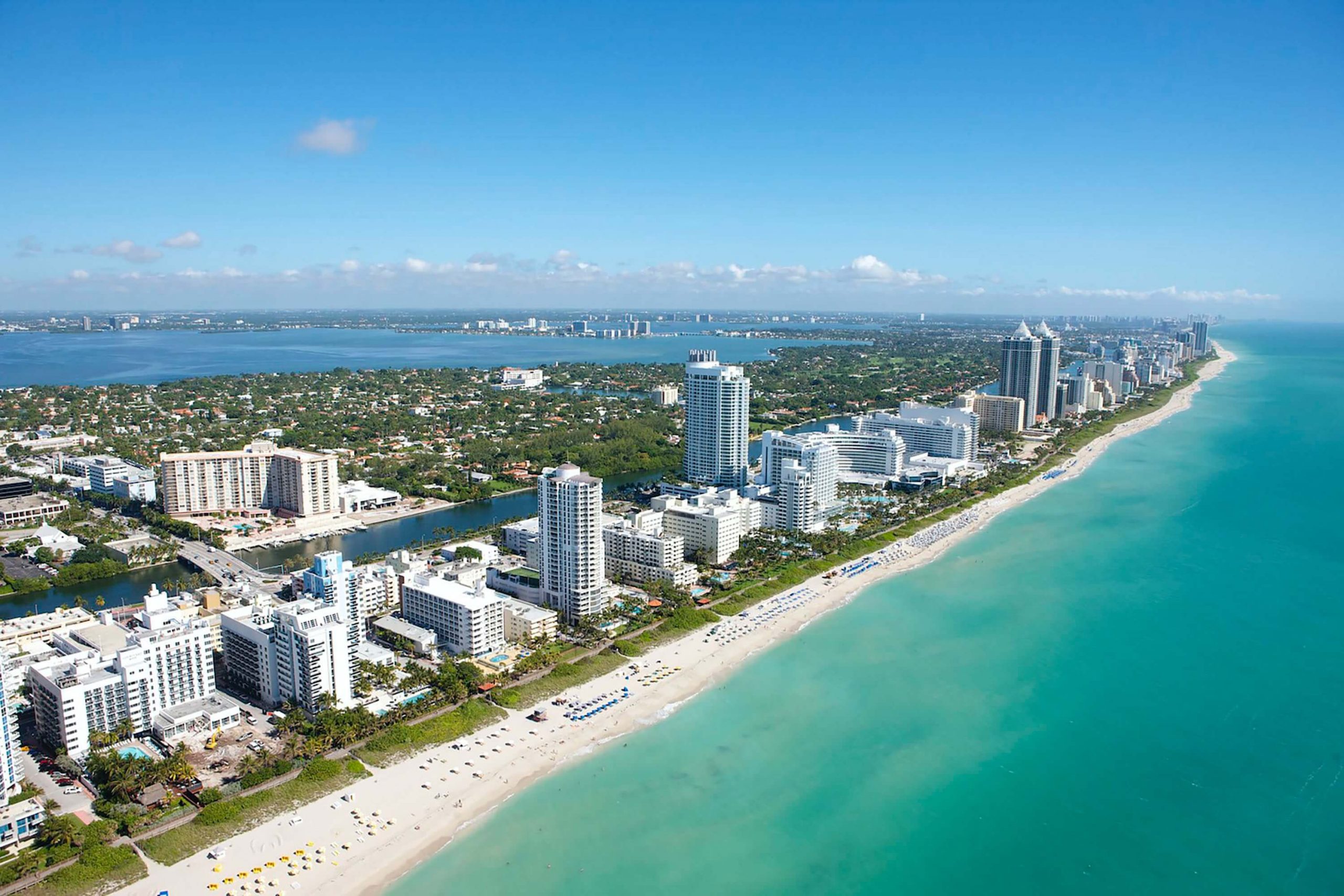1. First steps before moving to Canada
Finding a job
In the most recent report of CIC News, covering September 2023, Canada’s unemployment rate—the number of jobless people over the age of 15, divided by the country’s total labor force (those aged 15 and older)—remained consistent at 5.5%, with minimal change from the beginning of the year.
Canada has many job openings, and more so in specific sectors. Here are the most in demand jobs in some of Canada’s major provinces:
Ontario
- Industrial painters
- Industrial butchers
- Machine operators (specifically for mineral and metal processing)
- Agriculturists and harvesters
- Truck drivers
- Orderlies and nurse assistants
- Residential installers
Quebec
- It technicians
- Orderlies and nurse assistants
- Electrical engineers
- Welders
- Nurses
- Early childhood educators
- Media developers
- Civil engineering technicians
British Columbia
- Carpenters
- Hairdressers and barbers
- Construction workers
- Mechanics
- Cooks
- Heavy equipment operators
- Mechanics and millwrights in construction
- Welders
- Electricians
- Bakers
Alberta
- Truck drivers
- Administrative assistants
- Receptionists
- Early childhood educators
- Administrative officers
- Home builders and renovation managers
- General office workers
- Accounting technicians and bookkeepers
- Oil sands labourers
- Anaesthesiologists
CIC News (Oct 2023)& WorkBC (Nov 2023)
Visa requirements
Getting a visa is the most important requirement for moving to Canada from the US. Depending on whether you’re moving to Canada for work or to move in with a family member, the type of Visa you’ll need will differ.
Express Entry Visa
The Express Entry Visa is most suitable for professionals and skilled trade workers who have at least one year of full-time work experience. When applying through this method, your age, education, and field you work in will be considered.
Business Start-Up or Investment Visa
The Start-up Visa Program is recommended for entrepreneurs and business owners who wish to relocate to Canada. Investors with a minimum net worth of $10 million can also apply for immigration through this method.
Family Sponsorship Visa
If you have a family member who is already a resident in Canada and can sponsor your immigration, the Family Sponsorship Visa is best advised for you. If your spouse is a citizen or has been given permanent residence, you should apply through this visa.
Self-Employed Visa
The name of the Self-Employed Visa says it all. You need to be self-employed. But this is not the only requirement, you’ll need to score a certain amount of points on a selection grid made to determine if you’ll make a contribution (economic, cultural or athletic) to Canada.
Caregivers Visa
The Caregivers Visa is suitable for people who plan to be caregivers to a Canadian citizen or someone that lives in the country. You can become a permanent resident through this route or simply work temporarily.
Getting there
To move your household goods from the US to Canada, you have 3 options:
- Move them by car: a good option if you don’t have much stuff, and might need to drive your car to Canada anyway.
- Move them by plane: a good option if you’re starting fresh and will only be bringing a few things with you.
- Move them by hiring an international moving company. This is your best option if you have a bigger budget and a lot of stuff. When searching for an international moving company make sure that insurance is included, their prices aren’t extravagant (get many quotes), they have good Google reviews and their customer service is excellent.
Other travel options to reach Canada from US include:
- Taking the Amtrak train, which takes approximately 12 hours and 30 minutes from New York to Canada.
- Opting for a Greyhound bus journey, which takes approximately 12 hours.
The shortest flight distance between New York and Canada is 2,147.67 miles (3,456.34 kilometers). According to the route planner, the shortest route between New York and Canada is 3,230.96 mi (5,199.73 km). The driving time is around 62 hours and 4 minutes.
Must dos before your arrival
- Update Your Address: Changing your address is a crucial step when relocating. You can easily set up mail forwarding either online or in person before your move.
- Weather Preparedness: Be ready for Canada’s diverse weather. Check local forecasts and pack accordingly, especially if you’re unfamiliar with the region’s climate variations.
- Apartment Hunting: Plan ahead by researching and scheduling apartment visits before your arrival. This proactive approach will help streamline your housing search process and ensure a smoother transition.
2. Upon your arrival in Canada
Must dos right upon your arrival
- Get familiar with your neighborhood, and make sure to take note of the important emergency numbers.
- Locate the essential facilities like the nearest hospital, police station, and fire department for your safety and in case of emergency.
- Roaming around the city for work or just simply checking on it, it would be great to purchase a daily transit pass to save money.
Canada offers its residents various convenient transportation options, including buses, ferries, metros, and more. Different cities provide these services through their provincial governments, and you can anticipate a monthly cost ranging from $82.50 to $156.00.
| City | Monthly pass cost at regular rate |
| Toronto | $156.00 |
| Vancouver | $104.90 |
| Montreal | $97.00 |
| Calgary | $112.00 |
| Victoria | $85.00 |
| Edmonton | $100.00 |
| Winnipeg | $107.80 |
| Halifax | $82.50 |
Government of Canada & Transit Sources by Province (Sept 2023)
Exchanging your driver’s license
Depending on the province you’re moving to, you will be required to exchange your driver’s license for a provincial or territorial one between 90 days to 6 months upon your arrival. When it comes to driving in Canada, each province has its own organization that deals with driver’s licenses and vehicle registrations. For example, in Quebec it’s the SAAQ and in British Columbia it’s the ICBC.
Varying by province, Canada has a set of Distracted Driving Laws that include consequences for the following actions while driving:
- Talking on a handheld device
- Texting while driving
- Reading
- Watching videos
- Programming a GPS
- Eating or drinking
- Grooming
- Smoking or vaping
Registration Fees When Shipping Your Car to Canada
To import a US vehicle into Canada, you must pay registration fees that are determined by the Registrar of Imported Vehicles (RIV). The registration fee to import your US car to Canada is $325 plus the taxes in the province you’ll be moving to.
Modifications When Shipping Your Car to Canada
While cars in Canada and in the USA may appear the same, there are a few differences that have to be updated once you move to Canada. The Registrar of Imported Vehicles mandates that all cars entering Canada from the US must undergo an inspection, during which the following modifications may come up:
- Recall clearance letter
- At the time of import/inspection, the vehicle must bear the manufacturer’s valid US Statement of Compliance (SOC)
- The 17-digit alphanumeric Vehicle Identification Number (VIN) must be valid
- Metric speedometer
- Odometer labels
- Daytime running lights
- Kit for anchoring the child restraint tether
- Child restraint tether anchorage point locations (refer to Transport Canada’s List of Vehicles Admissible from the United States)
- A supplementary restraint system label for airbags that requires periodic maintenance in French
- A vehicle equipped with airbags must have functional airbags at the time of inspection
- The vehicle’s Gross Vehicle Weight Rating (GVWR) must be less than 10,000 lbs, and the date of manufacture must be after September 1, 2007, in order to meet the requirements of Canada Motor Vehicle Safety Standard (CMVSS) 114.
Car Insurance
If you had your car shipped, it is advisable to have it insured in case of any accidents. Once again, be sure to do proper research and pick the car insurance that works best for you.
Setting up a bank account
When moving to Canada from the US, it’s essential to establish a local presence by setting up a bank account. Royal Bank of Canada has more than 1,300 branches in Canada, and it is convenient for every local because it is accessible. If you want to change your address with Royal Bank of Canada, you may do so as it is a very straightforward process.
Getting health insurance
Contrary to the US, Canada offers free healthcare to its residents and citizens. Healthcare in Canada is free for doctor visits and hospital visits, but while medicine is partly covered, it’s not free. When moving to Canada from the US, you will not necessarily be automatically eligible for the free healthcare that Canada offers unless you are a permanent resident. If you are moving to Canada temporarily, you will have to purchase private health insurance.
In addition to the universal public health insurance offered by each province or territory, residents can opt for extra coverage through their employer or purchase private health insurance.
For comprehensive health coverage, consider purchasing a private health insurance policy or use your employer-sponsored plan.
| Type of healthcare | Cost |
| Employer-sponsored health insurance | $63.00 |
| Non-employer-sponsored health insurance | $50.00 – $150.00 |
| Gym | $57.30 |
Numbeo (Nov 2023),HelloSafe (2023) &Insurance Business (Apr 2023)
Temporarily Health Insurance
Again, if you are moving to Canada temporarily, you will have to purchase private health insurance. When you become a permanent resident, you will be covered by the public health care system.
3. Best places to live in Canada

The best places to live in Canada have relatively affordable housing, are safe, will keep you entertained, have good schools, have good job opportunities and are family-friendly.
- Ottawa, Ontario
- Calgary, Alberta
- Burlington, Ontario
- Quebec City, Quebec
- Saskatoon, Saskatchewan
Indeed, many Americans moving to Canada for work are tempted to move to larger metropolitan areas like Toronto, Montreal, or Vancouver that are full of career opportunities.
Setting up home services
In Canada, utility costs can vary significantly depending on the province you live in. Generally, utilities in Canada are reasonably priced. If you’re renting a property, you may often find these costs bundled into your monthly rent, making budgeting simpler.
One key component of utility costs is electricity, and its prices may change across provinces due to factors such as energy sources, population density, and proximity to generation sources.
According to Numbeo data, the average basic utility package that includes heating, electricity, water, and garbage will cost $199.02.
The best internet providers in Canada will have bundling options, various speeds, and multiple package options at reasonable prices.
Should you rent or buy?
Canada’s real estate market has its own distinctive characteristics. In major Canadian cities like Vancouver and Toronto, the housing market can be quite astounding. The average home prices here frequently surpass the national average, earning them a reputation as some of the most expensive places to buy property in Canada.
This can be attributed to factors such as high demand for housing, proximity to stunning natural landscapes, and the vibrant urban lifestyle that these cities offer.
Cost of rent in Canada
| Area/Neighborhood | 1-bed apartment | 3-bed apartment |
| Canada (Outside of Center) | $1,464.67 | $2,392.89 |
| City (Outside of Center) | 1-bed apartment | 3-bed apartment |
| Toronto | $2,280.60 | $3,434.43 |
| Vancouver | $2,240.70 | $3,791.40 |
| Montreal | $1,221.81 | $1,979.26 |
| Calgary | $1,509.55 | $2,386.41 |
| Victoria | $1,839.34 | $3,295.16 |
| Edmonton | $1,125.04 | $1,694.15 |
| Winnipeg | $1,278.64 | $1,914.05 |
| Halifax | $1,501.56 | $2,381.35 |
Numbeo (Nov 2023) & Numbeo by city (Sept 2023)
Cost of buying a property in Canada
| Area/Neighborhood | Average home price |
| Canada | $650,140 |
| City (Outside of Center) | Average home price |
| Toronto | $1,141,400 |
| Vancouver | $1,208,400 |
| Montreal | $521,600 |
| Calgary | $553,800 |
| Victoria | $888,000 |
| Edmonton | $374,100 |
| Winnipeg | $345,700 |
| Halifax | $530,900 |
CREA (Aug 2023) & CREA by city (Aug 2023)
Tenant or Homeowner Insurance
Even as a tenant, immigrants need home insurance. To get yours, make sure to find out about the different insurance companies accredited in Canada.
4. Cost of living in Canada
| Category | Monthly cost |
| 1 bed apt rent outside city center | $2,667.23 |
| Groceries
Numbeo’s grocery list ($85.63 multiplied by 4) |
$342.52 |
| Utilities
Electricity, heating, cooling, water, garbage |
$168.54 |
| Internet with 60 Mbps | $72.65 |
| Transit pass | $132.00 |
| Entertainment
Meal, taxi, movie |
$108.00 |
| Gym membership | $110.97 |
| Total | $3,601.91 |
5. The weather in Canada
Canada is frequently associated with frigid weather and snow, although its climate is as varied as its landscape. In general, Canadians enjoy four different seasons, especially in more populated areas bordering the US border. Summer temperatures can reach 35°C and more, but winter lows of -25°C are not unusual. In the spring and fall, temperatures are more temperate.
6. What to do as a local in Canada
Canada State has something for everyone, whether it’s the city’s excitement or the state’s natural beauty, keeping locals busy on weekends.
There are various beautiful national parks in Canada. There’s a park for everyone, whether it’s Banff and Jasper in Alberta, Gros Morne in Newfoundland, or the Cape Breton Highlands in Nova Scotia. Locals can go hiking, camping, and wildlife gazing.
Throughout the year, Canada celebrates a number of festivals that celebrate everything from music and cinema to culinary and cultural diversity. Check local event calendars for upcoming festivals in your region.
7. Fun facts about Canada
- Fun Fact #1: Canada is the world’s biggest producer of maple syrup.
- Fun fact #2: Canada has the most lakes of any country, with almost 31,000 lakes greater than 3 square kilometres.
- Fun Fact #3: Canada is home to over 60% of the world’s polar bears, and Churchill, Manitoba is known as the “Polar Bear Capital of the World.”
Conclusion
Canada is a safe country that is filled with stunning natural beauty and plenty of job opportunities. Expect chilly winters, high costs of living in major cities, and don’t text and drive!
Explore Canada’s neighborhoods, each offering unique characteristics. Setting up home services and understanding the cost of living are essential.
Prepare for Canada’s varying weather, and discover local activities. Fun facts about the city add a unique touch to your move. For assistance, consider the best moving companies in Canada.





